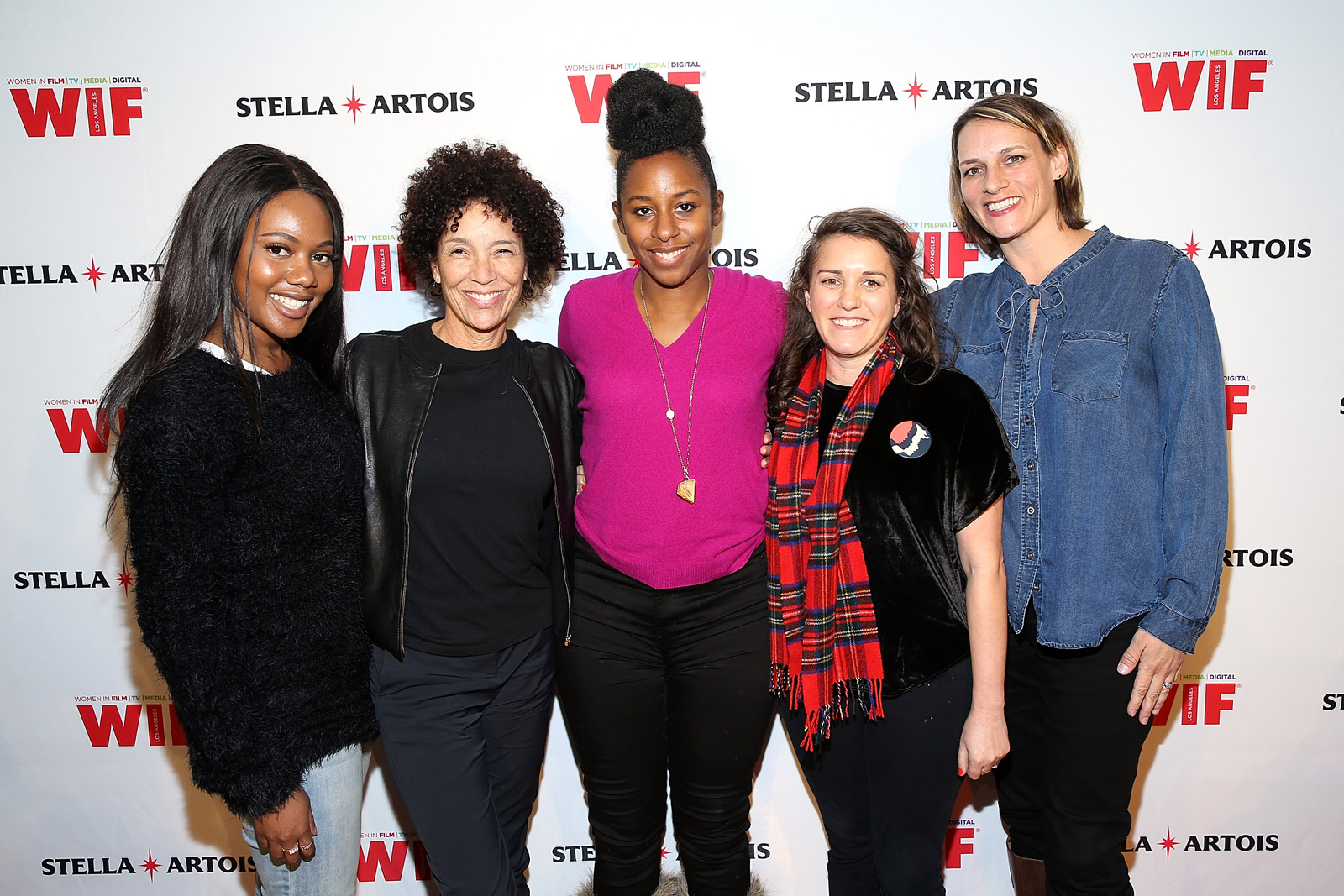Sundance Film Festival 2018: Women in Film
Guidance on the road to gender parity in cinema, plus a film finishing fund, all courtesy of Stella Artois

Since 1973, advocacy and mentorship organization Women in Film has sought gender parity in Hollywood. From mentorship to research and even funding, they’re a gravitational force toward balance. In the last year, much necessary change has occurred in the media industries that may impact equality for the better. This includes the highly publicized #MeToo and Time’s Up movements, but other manifestations stem from several messages of inclusion are finally making their way home. The first woman cinematographer has been nominated for an Academy Award. “Big Little Lies,” “The Handmaid’s Tale,” “Beauty and the Beast” and “Star Wars”—all led by women characters—dominated critical reception and financial success, respectively. Some 42% of the filmmakers represented at this year’s Sundance are women. And during the festival, tucked into Café Artois, a lounge of vibrant design and comfy couches just off of Main Street in Park City, Stella Artois hosted two of the most important public conversations to happen at the film festival—both of which involved the aforementioned Women in Film organization, with whom Stella partners.

Takeaways from both talks offered actionable advice and inspiration but the latter, featuring four filmmakers and Deadline’s Amanada N’Duka, drove home the idea that diverse storytelling means a greater (and necessary) understanding of one another. That said, it all began with the cold hard facts. “The numbers for working women directors are horrible,” producer and director Amy Adrion explains, citing USC and San Diego State University studies. “Over the past 10 years women directed about 4% of feature films [and 14-16% of TV shows]. The numbers are even worse for women of color,” she adds. In fact, non-white women (19.8% of the US population) direct just .006% of feature films. Adrion’s forthcoming film on this subject, “Half the Picture,” uses these statistics to great effect.

Producer Stephanie Allain, who spearheads Women in Films’s ReFrame initiative notes that this isn’t just a battle for women (or women of color), but everybody’s. “For the real movement to actualize,” she begins, “and to get to that 50/50 number, the gatekeepers—studio executives, network executives, the reporters who write about our stories, agencies—those all need to be parity adjacent. They need to have that same number of women. It cannot just be the filmmakers out here, slogging away, trying to make our movies.” This, she says, will make for a real gender revolution.

Producer Liz Destro, at Sundance for her work on “Lizzie”—the extraordinary Chloe Sevigny and Kristen Stewart-led Lizzie Borden drama—brings the conversation to agents. “Once you have more female agents, you’ll have them fighting for women as much as men,” Destro says, wondering why male agents do not fight for their women clients like they do for their male clients right now (with Michelle Williams being a recent example). She does note that change has begun to occur, with more women being present just about everywhere. And mentorship offering a substantial impact.

The revolution is not live until all the gatekeepers look like everyone in America
Throughout the event, all panelists spoke to the importance of remaining optimistic.
But while things have changed a lot, it is not enough. “The revolution is not live until all the gatekeepers look like everyone in America,” Allain reminds. “I used to say I want to hire the best people for the job,” she continunes. “I realize that by saying that I was looking at metrics like who has the best resume, who has won the most awards… typically those were all men and all white men.” This could easily be attributed to the fact that men (and white men specifically) have long been offered positions the most—snagging up all opportunity. Allain’s thoughts then became, “I want my set to be diverse, with all kinds of people. I want to find the best of all kinds of people.” With an application of this mentality, all of us can do something every day to push inclusion forward.

“In the specificity of authenticity we are able to connect on a greater level,” director Mel Jones adds. “That’s why it is important that if you are going to tell a story about a black woman there better be a black woman somewhere in the room,” she adds. And as simple as that sounds, it hasn’t been the case for a long, long time. So much of what was drawn from this conversation—these quotes that truly act as guides—are really common sense. And yet they haven’t been commonly enacted in the industry. They’re necessary to internalize.
And of course, there’s also the financing of women-led productions. Stella has been there to help. They’ve been offering Film Finishing Fund grants in partnership with Women in Film. Adrion’s film was the recipient of one $25,000 grant—bestowed on films by women that inspire social change. With funding comes empowerment, with empowerment comes mentorship, and with mentorship and gatekeeping roles, comes parity—if only if were that easy.
Images courtesy of Getty












